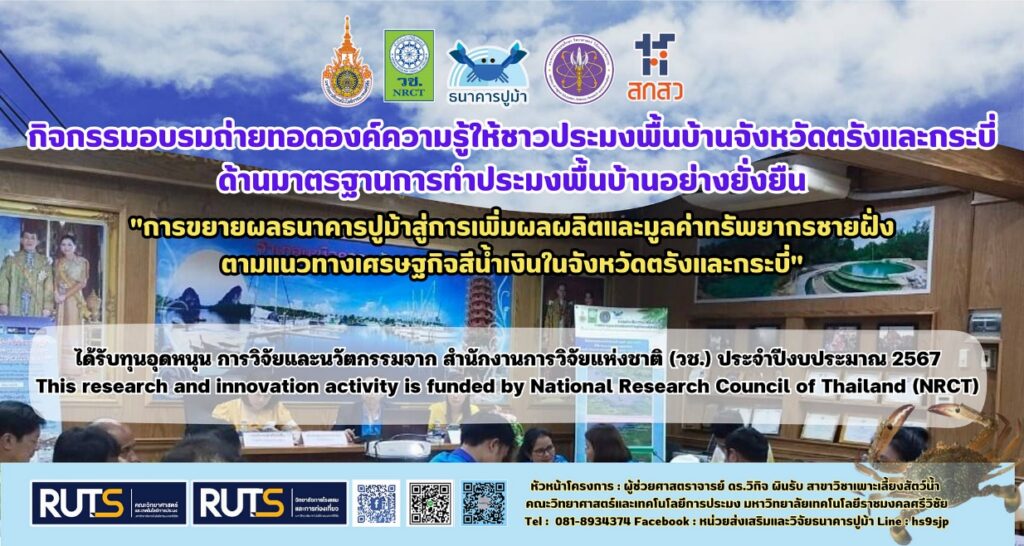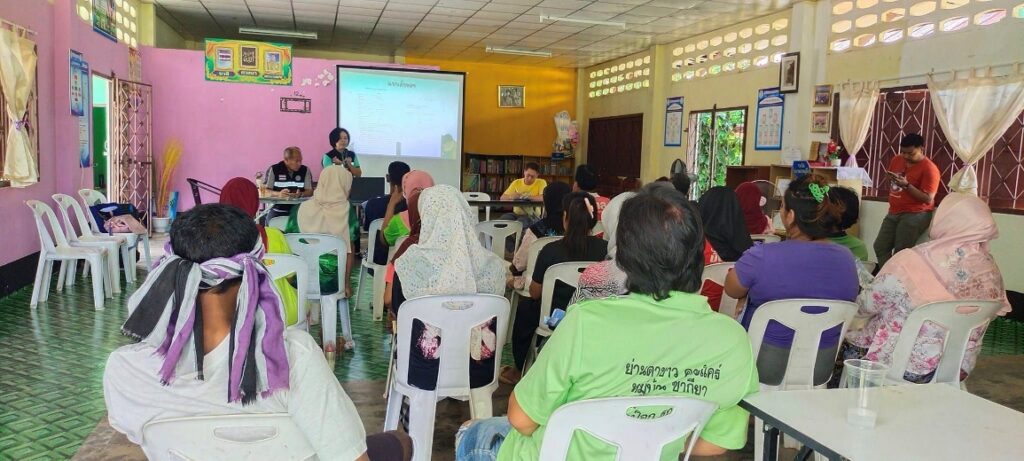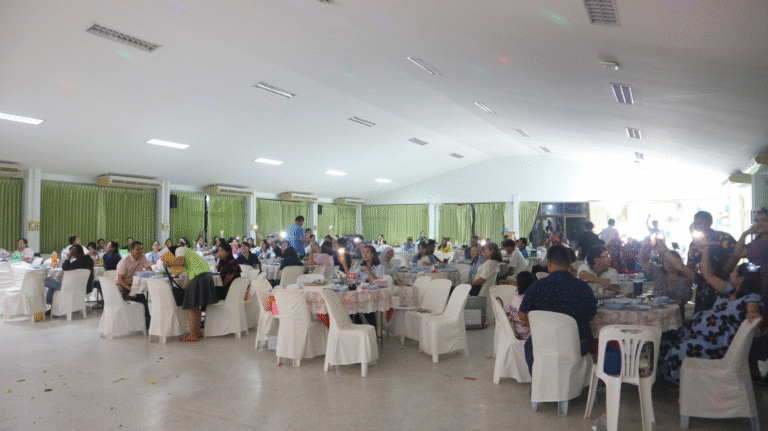Reporters : Dr. Lamun Kayurin
Date :January -December 2024
Related SDGs: 
Indicators : 17.4, 17.4.3
RUTS has dedicated outreach educational activities for the wider community which include alumni, local residents, displaced people.

The RUTS project aims to empower the Trang fishing community by promoting responsible and sustainable fishing practices. Through community engagement, training workshops and knowledge transfer, the project builds local capacity to adopt environmentally friendly techniques that project marine resources. It supports fishermen in improving their livelihoods while reducing ecological impact. The initiative also strengthens partnerships between RUTS, local authorities, and community group to ensure long-term sustainability and alignment with national policies and the UN Sustainable Development Goals (SDGs). In conclusion, the project enhances community resilience, encourages stewardship of marine ecosystems, and contributes to sustainable coastal development. For instance, the “Empowering the Trang Coastal Communities for Responsible Fisheries Project”, a participatory effort led by Rajamangala University of Technology Srivijaya (RUTS) in 2024. The project aimed at educating Trang’s coastal communities. The goal is simple: to inform local fishers about serious issues like overfishing, illegal, unreported, and unregulated (IUU) fishing, and destructive practices. This initiative is crucial because it ensures fishers are directly involved in both developing and implementing sustainable management rules. RUTS stresses the vital role universities play in pushing for sustainability by engaging local residents. Through these efforts, RUTS is making a significant contribution to better local fisheries management.


RUTS’s primary goal in 2024 is to enhance learning among 10 Trang coastal communities, enabling them to adopt sustainable resource use. This involves educating small-scale fishers and other stakeholders on critical issues like overfishing, destructive practices, and illegal, unreported, and unregulated (IUU) fishing. The project has been instrumental in increasing IUU awareness and driving the adoption of sustainable local practices. The Local Challenge Coastal communities in Trang face serious hurdles: low income, widespread use of illegal fishing gear, severely declining fish stocks, degraded seagrass beds, and issues stemming from aquaculture.
Project Strategy To combat these issues, the project aims to establish a Learning and Innovation Model (LIP) for “smart” fishing communities. The key initiatives are focused on two major areas:
- Restoration: Implementing “Crab Bank and Seagrass Management” to specifically restore blue crab populations and seagrass beds.
2. Stewardship: Promoting “Fisheries and Environmental Management” to ensure overall sustainable fisheries and environmental care.


RUTS, in collaboration with the Trang Provincial Fisheries Office, Department of Fisheries, also organized a knowledge-sharing program for local fishers on sustainable small-scale fisheries standards. The event was part of the “Blue Economy Initiative” aimed at expanding the Blue Swimming Crab Bank project to enhance coastal productivity and resource value in Trang Province.


As a result, RUTS’s participatory project served as crucial instrument to raise awareness on IUU fishing and to start sustainable practices for coastal communities in Thailand.
Related Links :
https://fishtech.rmutsv.ac.th/ruts/2024/07/20/14564/research-5/
https://www.facebook.com/profile.php?id=100093190931962
https://www.facebook.com/photo?fbid=2428648747329871&set=pcb.2428649430663136
https://www.facebook.com/photo/?fbid=2428649030663176&set=pcb.2428649430663136



